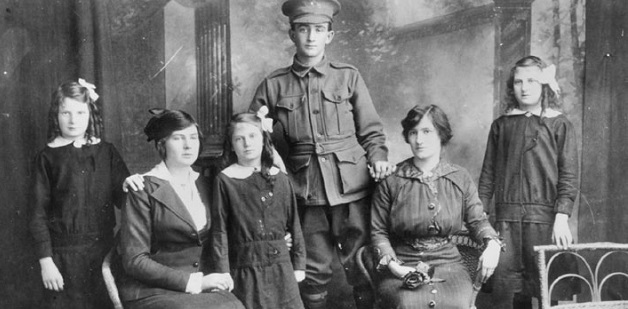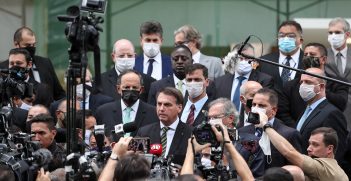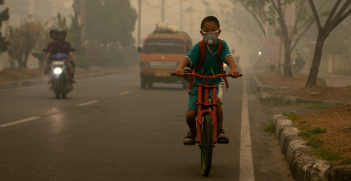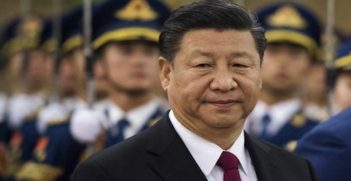Our Anzacs and Child Soldiers

Around Australia we are commemorating the Centenary of Anzac, but on June 4 we will also be commemorating the International Day of Innocent Child Victims of Aggression. A story of an Anzac child solider invites us to reflect on the role children play in conflict and the way that aggression can shape, and indeed end, their lives.
On the 25 April 1915, only a few months after departing for war, the ANZAC troops made their ill-fated landing at Gallipoli in what we now know was for many their first and last taste of conflict. During this campaign Private James Martin died of typhoid fever. He was the youngest Australian to die in World War One. James was only 14 years and nine months.
Innocence and Conflict
James Martin was only able to enlist so young because he provided a false birth date to the recruiting officer; at the time in Australia only those over the age of 18 could enlist. Though they may have had their misgivings, James enlisted in the ADF with his parents’ consent. At first James’ parents refused but they relented after he said he would enlist under a false name.
James’ story stands in stark contrast to the way we think about children in conflict today. Take, for example, the discussion of children in conflict that arose during the campaign Kony 2012 run by the organisation Invisible Children that sought to achieve the arrest of indicted Ugandan war criminal Joseph Kony. Kony is notorious for the use of child soldiers in his Lord’s Resistance Army (LRA). The film that accompanied the campaign shocked many and increased awareness of child soldiers. There was general moral outrage regarding the participation of children in the LRA in a way that was not felt in 1915 when James Martin enlisted for War.
But why? In the case of Kony’s child soldiers the answer may lie in their forced coercion into the LRA. While being forced to fight against one’s will is clearly against the interests of children it is also against the interest of adults. Here we seem to be identifying the lack of choice as the wrong, not the fact that these individuals are children. What is it about being a child that makes participation in conflict so abhorrent?
The fact remains that many child soldiers in modern conflicts are not coerced into participating but, like young James Martin, they join autonomously. Joining a military group is often an ideological choice for children, a way to gain social standing or demonstrate solidarity with family, clan or nation.
In Uganda in 1986 many children joined the National Resistance Army LRA as a refuge from the violence in the rest of the country. Joining an army can offer protection, shelter and food. Like adults, children often want to fight for reasons such as social justice, religious belief, cultural identity or to seek revenge for the deaths of their family.
The international legal definition of a child soldier, however, does not recognise this. Instead it states that no child under the age of 18 is capable of consenting to fight. Does this mean that we should ignore the choices that children such as James Martin made? Should we ignore the clearly passionate argument that he made to his parents about why he wanted to enlist?
Children are killed in conflict every year, sometimes by other children. It is a hard fact to come to terms with that not only do some child soldiers join voluntarily but they can often be the most vicious combatants.
Seeing children as passive objects to which things always happen to, creates a simple landscape of conflict and war. In this understanding children are always innocent and always victims. The conjunction of encourages us to reflect on those children whose place in conflict is more complex. Recognising that children, like adults, have agency and that they play an active role in their own lives, makes our understanding of children in conflict much more difficult. But it is a reality that must be acknowledged.
Vulnerability and harm
Our understanding of children in conflict should turn on their vulnerability.
The stories of child soldiers that have fought within the Democratic Republic of Congo demonstrate how the choice to join an army and to fight is far from what we understand as free and informed consent. In a context of constant propaganda, ethnic nationalism and culture of war, it is easy to see how a seven year old may understand holding a gun to be their only option.
Children are more vulnerable than adults to the suggestive force of propaganda. Their agency is developing and although they are capable of making choices, it may be the quality of their choices that we question. So how do we resolve agency, innocence, vulnerability and conflict?
Despite whether a child has joined voluntarily or was coerced there seems to be something particular about children fighting that we wish to prevent. Childhood is a period of rapid development of capacities. Children who are soldiers are exposed to harm in ways that adults are not. They spend their formative years immersed in a culture of violence and denied other forms of education, development and agency.
During his time at war James wrote to his family telling them not to worry as “I am doing splendid over here”. However we know that the impact of War on children and young adults is dire. Even if James had survived he would most probably have returned home mentally scarred, the key years of his emotional and psychological development influenced by violence and aggression.
June 4 is a day to pay attention to the work that organisations such as Child Soldiers International, Amnesty International and UNICEF do in protecting children from situations of conflict and helping those who have experienced war attempt to return to normal life.
We should remember that although it is 100 years since Australia saw some of its youngest children participate in war, experiences of aggression, conflict and violence still unfortunately remain a part of everyday life for children across the world today.
Mhairi Cowden holds a PhD in the rights of children from the Australian National University.





